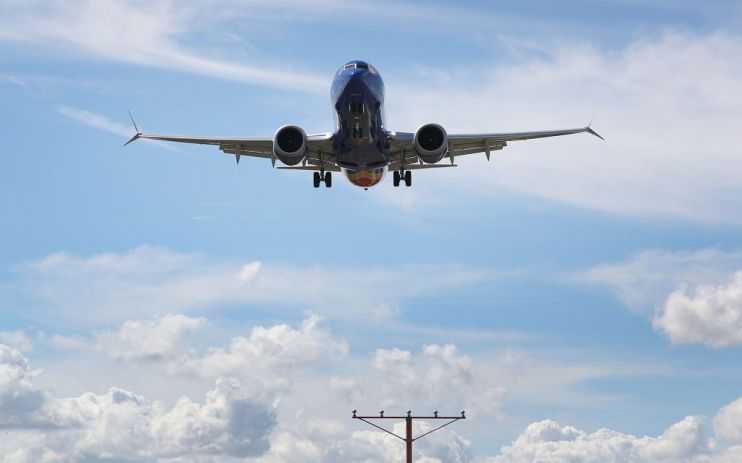Boeing could be fined $5.4m by US regulator for 737 MAX defective parts

The Federal Aviation Administration (FAA) has said it is seeking to fine Boeing $5.4m (£4.14m) on allegations it failed to prevent the installation of defective parts on its 737 MAX airplanes.
The 737 MAX has been grounded since March 2019 after two crashes killed 346 people, although the parts issue is completely unrelated, Boeing said.
Read more: Boeing 737 MAX ‘designed by clowns’ internal memos reveal
The FAA alleged that Boeing “failed to adequately oversee its suppliers to ensure they complied with the company’s quality assurance system.”
It added: “Boeing knowingly submitted aircraft for final FAA airworthiness certification after determining that the parts could not be used due to a failed strength test.”
In December, the US regulator proposed a $3.9m civil penalty against the aircraft maker for the same issue involving 133 737 NG airplanes – the prior generation of the 737.
Concerns were raised by the FAA in June that the 300 NG and 737 MAX airplanes may contain improperly manufactured parts. It said they would need to be quickly replaced.
The problem parts are tracks on the leading edge of the wings, which are used to guide the movement of slats that provide additional lift during takeoff and landing.
It could result in a slat striking an airplane and resulting in injury to passengers or preventing a safe landing.
The oversight by Boeing “resulted in the installation of slat tracks that were weakened by a condition known as hydrogen embrittlement that occurred during cadmium-titanium plating,” the FAA added.
Read more: Boeing mulls raising more debt as aerospace giant feels the pinch
Responding to the announcement on Friday, Boeing it was aware of the proposed penalty and that it had not seen any in-service issues with the parts.
“We will ensure that all inspections and any necessary part replacements are performed on all 737 MAXs before they return to service. We have not been informed of any in-service issues related to the slat tracks themselves,” Boeing said.